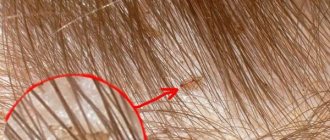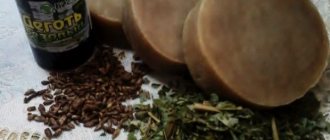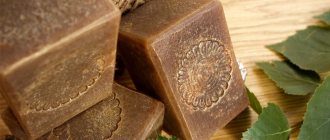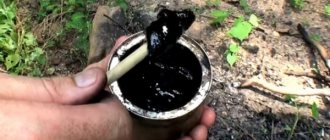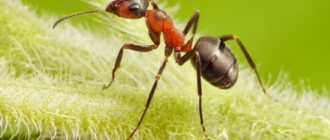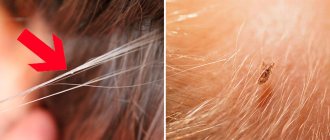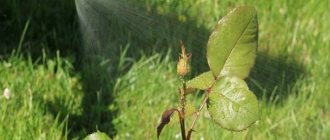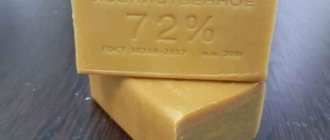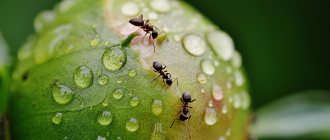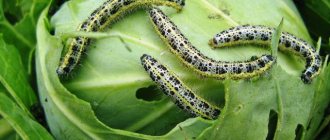Since ancient times, people have used the wonderful properties of tar for a variety of purposes. Several centuries ago, our ancestors came to the conclusion that solutions that contain it protect gardens and vegetable gardens from pests. With the development of the chemical industry, insecticides replaced natural tar preparations, but many still continue to trust a natural product that does not cause any harm to either plants or people.
For what purposes do gardeners use tar soap?
It is used to disinfect the soil by applying home-prepared solutions under the roots, and also to destroy harmful insects by spraying. But such products must be prepared and used in accordance with what kind of pests you are going to get rid of. A low concentration will not kill insects, but too high a concentration will accumulate in plants and fruits, as a result of which it will enter the human body.
The benefits of tar and the advantages of its use in the garden
Birch tar is a natural and safe remedy that has long been successfully used in households, folk medicine, cosmetology, gardening and horticulture due to its many beneficial properties (antiseptic, antiparasitic, antimicrobial). It contains resins, paraffin, organic acids, phytoncides, natural antiseptics (phenol), guaiacol...
Of course, we do not urge you, following the example of your ancestors, to lubricate cart wheels with tar or tan leather with it, but, believe me, it is very advisable to use it in the garden. Due to its sharp, specific odor, it works as an excellent repellent for harmful insects and small mammals, and the healing properties of tar help plants fight various diseases.
The use of birch tar on the site, compared to conventional pesticides, has many advantages:
Advantages and disadvantages of tar soap
The tar that is part of the soap is prepared from birch bark, knots and chips. This substance is natural, safe for people and warm-blooded animals, which is why experts recommend it for pest control in gardens and vegetable gardens. The smell of tar does not kill insects, but simply drives them away from the area; only slugs are left with burns from this substance. Rodents, by the way, are also afraid of him. One of the positive aspects is that tar is not addictive, so you can use it regularly and get positive results.
Having left the land after treatment with a solution of tar soap, the pests will not return for three weeks to two months, that is, you will have to carry out the treatment infrequently, and all you need for this is an ordinary spray bottle.
The disadvantage of this product is that the tar smell repels not only pests, but also pollinators, so if you have bees, it is better not to use this method. It is also better not to subject indoor plants to this treatment during flowering. Do not use the product on greens or ripening fruits, otherwise they will smell like tar.
There is no point in combining the product with industrial fungicides and insecticides, since the tar components will lose their effectiveness. And one more important point. If you suffer from allergies, avoid tar soap, as it contains allergens.
The benefits of ash-soap solution for plants
Experienced gardeners use an infusion or decoction of plant ash with the addition of ordinary laundry soap against aphids. Its use is completely safe at all stages of plant growth, in contrast to pesticides, which can only be used before flowering or after harvesting. The ash-soap solution completely decomposes in nature and does not harm the environment, pets, birds or people.
The insecticidal properties of this product are due to the active components of the ash, which have disinfectant, disinfectant and antibacterial properties. In addition, the ash contains mineral salts of potassium, calcium, phosphorus, and iron, and spraying plants with this solution will provide additional effective foliar feeding.
And thanks to soap, after treating plants with infusion, an air-impermeable film is formed on the leaves, which prevents the normal breathing of aphids. The only drawback of the soap-ash solution is the need for repeated irrigation of seedlings (from 3 to 5 times). All treatments with the composition should be carried out in dry weather, since rain can wash away most of the bioactive compounds.
Ways to use tar soap
This natural product can be used in different ways. Everything here should depend on the goals. To scare away hares, cats, moles, flies and insects that are harmless to plants, hang tin cans with a cloth soaked in a solution of tar soap around the property. As the material dries, it must be changed. An alternative to this method is stakes with rags soaked in tar solution wrapped on top. The distance between pegs must be at least two meters. The smell of tar is not washed away by rain, and even if you don’t feel it yourself, pests will.
Hares often damage the bark of trees in vegetable gardens. To prevent this from happening, paint the trunks with a lime solution with the addition of tar soap. As a result, the bark will no longer attract not only rodents, but also insects. In ten liters of water, dilute a kilogram of whitewash and a grated bar of soap, which, by the way, can be replaced with 50 milliliters of natural tar. If there is an infestation on the land, mulch it. Dilute ten milliliters of this product in ten liters of water and soak the sawdust in it.
For universal spraying, grate 100 grams of tar soap on a fine grater and mix with 300 grams of wood ash. Add the mixture to a bucket of hot water and leave to steep for one hour. After this time, stir the mixture and spray the plants with it from a spray bottle.
The solution is also suitable for processing planting material of root crops. But in this case, it is better to replace soap with natural tar. Ten liters of water will require 15 milliliters of this product. Immerse the seedlings in the emulsion for about five minutes, and then proceed to planting.
To water the holes, you can use a disinfecting suspension. How to cook it? Dissolve 50 grams of tar soap in five liters of water. Before planting potatoes, pour one glass of this product into the hole. It is recommended to irrigate root crops, including onions, immediately after sowing and this procedure should be repeated after 15 days. In this case, one square meter of bed will require a liter of solution.
Repelling moles
To expel moles from the garden, rags soaked in a mixture of tar and vegetable oil in a ratio of 3:2 are placed in their holes. They try to stick the rag as deep as possible, and sprinkle it with earth on top and trample it down.
These events are held in early spring. They are also effective for expelling gophers, mice and other rodents.
The most effective ways:
- A mixture of 15 g of tar and 10 liters of water will help protect against moles and mice. Sawdust is soaked in the solution and buried around the trunks.
- A special whitewash, which is applied in the fall, eliminates the attacks of hares. You need to mix 10 liters of manure, 1 kg of whitewash and 50 g of tar, dilute with water until the consistency of kefir.
Fighting aphids
If there are aphids on your plot of land, then you can defeat them by preparing a “medicine” from tomato tops with the addition of tar and laundry soap. Place four kilograms of tops in a bucket, fill it with ten liters of water, add 50 grams of grated laundry soap and let it brew for five hours, and then simmer the mixture for half an hour over low heat and add 50 grams of grated tar soap into the liquid. Wait for the broth to boil and remove the bucket from the heat. When the mixture has cooled, spray the plants with it.
If aphids have infected fruit trees, then you can achieve maximum effect using the following solution. Dilute 60 grams of tar soap in ten liters of water. No need to spray. Pour the product into small wide-necked bottles and hang them on tree branches. After some time, not a trace of the aphids will remain. To avoid this problem again, periodically refresh the contents of the bottles. And if in late autumn you soak sawdust with such a solution and scatter it in the tree trunk area, you will drive ants away from the area.
A solution of tar soap and ash will help you get rid of aphids on fruit bushes. Dissolve half a kilogram of ash in a bucket of boiling water, add 50 grams of crushed garlic, and when the liquid has cooled, add 50 grams of crushed tar soap into it. Treat the tops of berry bushes with this product. This procedure can be performed only after they have finished flowering.
Instructions for use
Efficiency of soap solution
The fight against aphids is carried out by spraying. Small bushes of plants are watered from a watering can. For spraying, use a garden sprayer and bottles with a nozzle.
During treatment, you should try to ensure that the stream hits the lower part of the plant, since this is where the pests are concentrated. Otherwise, the solution will flow to the ground without getting on the aphids.
On a note!
The frequency of application depends on the degree of damage to the garden plot. The activity begins at the first signs of crop damage and is repeated every week for prevention. Destruction is carried out in several procedures with a break of 2-3 days.
Tar soap against the Colorado potato beetle
The Colorado potato beetle is considered one of the most common pests on land. It's easy to get rid of it. Dissolve a bar of tar soap in eight liters of warm water and spray the affected plants with this solution from a spray bottle. To achieve maximum effect, perform treatment during the period of greatest solar activity. If it rains more often, repeat the procedure as often as possible. This method is suitable not only for killing beetles, but also for preventing them.
How to identify a lesion
If you regularly inspect your plantings, you will not be able to miss the changes happening to them. The leaves and tops are bent, the shoots do not grow, which means you need to look for the cause. Aphids pose the greatest danger to young and immature plants. But even large trees have a hard time. The insect is very prolific, it reproduces quickly and massively. Every two weeks a new generation is born. The female lays 150-200 larvae at a time. Therefore, the population is growing at a fantastic rate, and the fight against it involves enormous efforts.
So, be sure to pay attention to the following signs:
- If the underside of the leaves has changed color, it is covered with honeydew.
- White scales on the ground, near the plant. These are the shells that the insect sheds. With a large population, it is almost impossible not to notice them.
- Ants love aphids very much. If they start scurrying around the plant, then you need to prepare for a fight. It is now that a soap solution against aphids can help best.
- Leaves curl and turn yellow. Be sure to inspect them for pests.
- Undeveloped and twisted buds are also direct evidence of insect activity.
Tar soap for ants
Ants are hard workers, for which they are “respected,” but they contribute to the spread of aphids throughout the land and often damage the crop, so you also need to fight them, and tar soap will help you with this. For these purposes, a solution is prepared from it and poured into anthills or sprayed on damaged plants.
Mix the following ingredients: 25 grams of baking soda, the same amount of crushed soap, ten grams of garlic, two liters of water. Use as directed after all ingredients are completely dissolved.
Carrier of infections
Few people know that aphids are such a dangerous insect. It is the main carrier of various viral infections that cause gall formations on leaves. These are hard growths on the leaves that weaken the entire plant, which can lead to its death. In addition, garden ants are very fond of aphids. They breed it themselves and transfer it to the trees after winter from their burrows. Therefore, you have to fight the ants at the same time. A soap solution against aphids is best suited for this.
Pest Prevention
To prevent the spread of aphids and other insects in the garden, prepare an alcohol solution. Dilute 40 grams of grated tar soap in one liter of water, add 40 milliliters of pure alcohol and spray the plants. The mixture of alcohol and tar smells acts as a deterrent, but the disadvantage of the product is its limited effect, so you will have to repeat the procedure.
Here is another recipe for an effective universal remedy. Grind 200 grams of dry tobacco leaves into powder, place them in a bucket along with two chopped hot peppers, add ten liters of water and leave for 24 hours. The next day, add 40 grams of wood ash and tar soap.
How to prepare tar yourself and where to buy it
Since birch tar is gaining increasing popularity in various fields, from gardening and gardening to medicine and cosmetology, you can buy it at several points at once - in a regular pharmacy, in specialized garden stores, in online stores.
If you need large volumes of this product, and you are not afraid to work with your hands, you can prepare birch tar yourself.
There are two types of tar - birch and birch bark. The first is obtained by dry distillation (pyrolysis) of birch chips, twigs and bark, the second is obtained only from birch bark of young birch bark. The main difference lies in the concentration of aromatic substances in the resulting substance. If birch bark tar has a fairly light odor and is used mainly for the production of medical and cosmetic preparations, then birch tar, with a pungent spirit, is a dark oily liquid and is perfect for gardeners. It is both excellent protection against various fungal diseases, an excellent antimicrobial agent, and an excellent antiseptic. This absolutely natural remedy perfectly protects against many pests of cultivated plants.
We offer you a recipe for obtaining birch tar:
From 10 kg of birch bark you can distill approximately 3 kg of tar.
Pharmacy and store-bought tar will already be purified and, therefore, more effective than homemade. This does not apply to cosmetic preparations based on tar - for example, tar soap - there is so little tar that they will be almost useless as a repellent in the garden.
